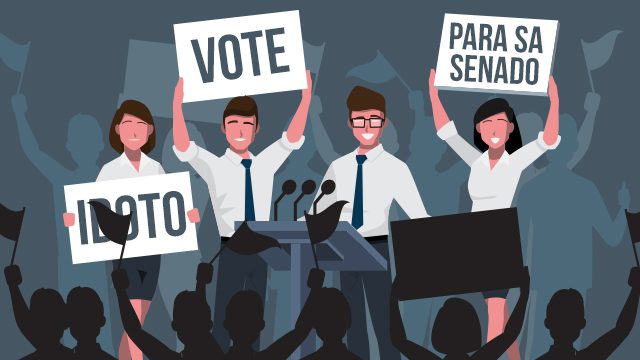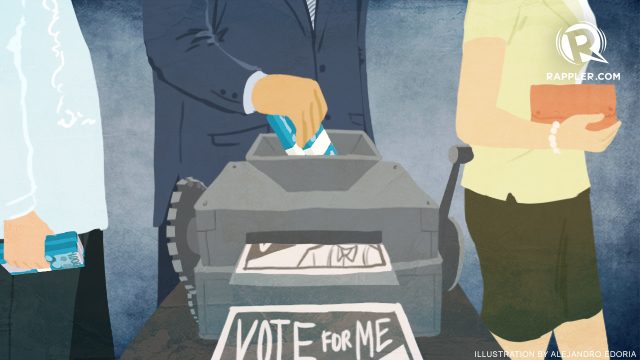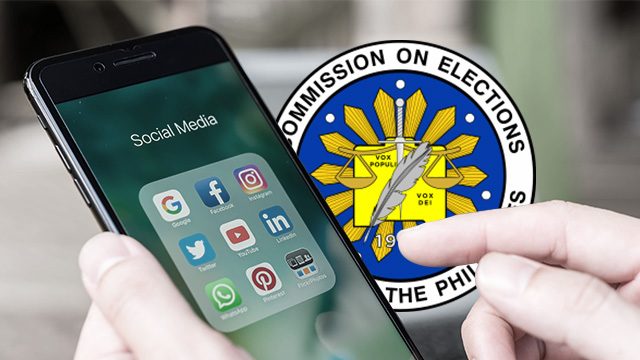SUMMARY
This is AI generated summarization, which may have errors. For context, always refer to the full article.

MANILA, Philippines – Filipinos will see candidates seeking election in a national position more than the usual as the campaign period for the 2019 elections starts on Tuesday, February 12.
What can the public expect to happen starting February 12? Here’s what you need to know:
Why February 12?
The start of the campaign period is determined by the Omnibus Election Code (OEC). According to this important document, the period for national candidates – including senatorial bets and party-list groups – begins 90 days before election day.
Elections, meanwhile, are held every second Monday of May. This year, that falls on May 13 – exactly 90 days after February 12.
The campaign period for national elections ends on May 11.
Local bets, meanwhile, have a different timeframe to follow. The OEC gives governors down to municipal councilors and district representatives 45 days – which means their campaign period starts on March 29 and ends on May 11.
Campaigning is not allowed on Maundy Thursday (April 18) and Good Friday (April 19). (READ: LIST: 2019 Philippine Holidays)
Official candidates now
The people we see parading their credentials and promises are considered official candidates at the beginning of the campaign season.
Section 11 of Republic Act No. 8436, as amended by Section 13 of Republic Act No. 9369, says that Comelec-approved certificate of candidacy (COC) filers “shall only be considered as a candidate at the start of the campaign period.”
As of January 31, there are 62 senatorial candidates and 134 party-list groups hoping to get the people’s votes, according to the Commission on Elections.

Start of strict implementation of rules on campaign finances and materials
On February 12, the Comelec will begin to implement its rules and regulations for campaigns. Official candidates are now expected to abide by these rules or face sanctions.
The rules are mostly in relation to campaign finances and materials.
The Omnibus Election Code limits the campaign spending of candidates. Those who are with a political party can spend P3 per voter, while independent candidates can spend P5 per voter. Political parties and party-list groups, meanwhile, are allowed to spend up to P5 per voter.
The total amount depends on the number of registered voters covered by the elective position. For example, national candidates will multiply by P3 or P5 the total number of registered voters in the Philippines.
The expenses of candidates, political parties, and party-list groups are tracked by the end of the election period through the Statements of Contributions and Expenditures (SOCEs). The Comelec requires the submission of SOCES; both non-submission and overspending can result in sanctions. (EXPLAINER: Why ‘candidates’ can spend so much and not report it)
No more life stories of candidates featured in series or movies allowed
Campaign materials printed or aired on television or radio are regulated under Republic Act No. 9006 or the Fair Elections Act.
Under this law, pamphlets, leaflets, cards, decals, stickers, and other similar materials should have a maximum length of 14 inches and maximum width of 8 1/2 inches. Posters, meanwhile, should measure no more than 2 feet by 3 feet.
These posters can be placed only in designated common areas. Those posted on public structures such as waiting sheds, electric posts and wires, and road traffic signs, among others, are deemed “unlawful campaign materials.”
TV and radio advertisement limits, meanwhile, are as follows:
| National candidates and parties | Local candidates | |
| Television ads | Maximum of 120 minutes per station | Maximum of 60 minutes per station |
| Radio ads | Maximum of 180 minutes per station | Maximum of 90 minutes per station |
There are also others actions not allowed, including:
- Public showing in a theater, through a television station, a video sharing site, social media network, or any public forum, any movie, documentary, concert, or performance about the life or biography of a candidate
- Allowing the scheduling of any program or letting any sponsor manifestly campaign for or against any candidate or party by unduly or repeatedly referring to, or unnecessarily mentioning his or her name
- Posting of campaign ads outside authorized common poster areas, in public places, or in private properties without the owner’s consent
- The use of a campaign ad that violates the Magna Carta of Women, gender sensitivity, and is obscene or offensive
The Comelec now also requires campaign advertisements on television and social media to have sign language interpreters and closed captioning while printed materials should be available in Braille. (READ: Comelec aims for more PWD-friendly, gender-sensitive ads in 2019 elections)

New rules for social media campaign implemented
The Comelec will start to implement during the upcoming campaign period a new set of rules specifically crafted with social media in mind.
Starting February 12, social media influencers tapped by candidates are now considered contractors. They are now required to report to the Comelec the money they received from clients to either campaign for or against a candidate.
The Comelec also has required candidates and parties to register their website name and social media accounts, including any social media page or blog on the internet “directly or indirectly” maintained by the candidate or his or her party, that is endorsing him or her primarily.
Another set of prohibited acts
Several acts were already prohibited once the election period started on January 13, including carrying of guns, use of security personnel by candidates, and the transfer or movements of government employees, among others. (READ: LIST: 2019 election-related bans)
The start of the campaign period adds another set of prohibited acts to the list.
Starting February 12, giving donations or gifts in cash or in kind to “candidates, treasurers of parties, or their agents for any structure for public use or for the use of any religious or civic organization” is not allowed anymore. The appointment or use of special policemen, confidential agents, and others is also prohibited.
When the local campaign period begins on March 29, prohibited acts will include appointment/hiring of new employees, creation of new positions, salary increases, and release/disbursement of public funds, among others.
The campaign period will surely be a frenzy of activity but Filipinos should not forget that the next 3 weeks will mark an important period of decision-making that can determine the trajectory of the Philippines in the next 3 years. – Rappler.com
Add a comment
How does this make you feel?
There are no comments yet. Add your comment to start the conversation.